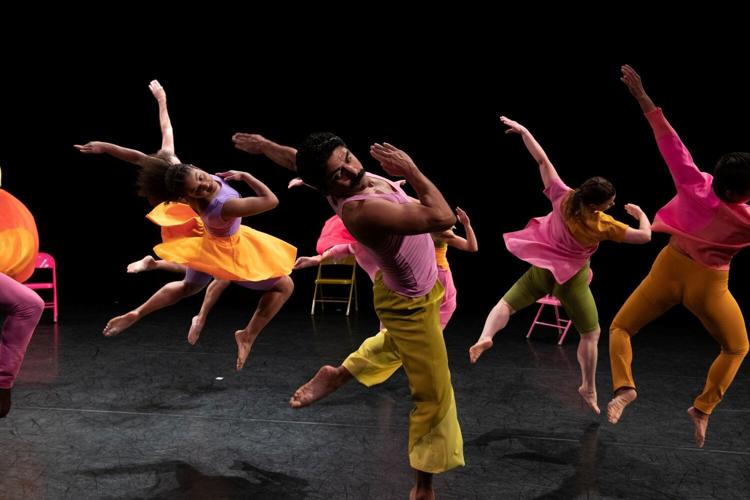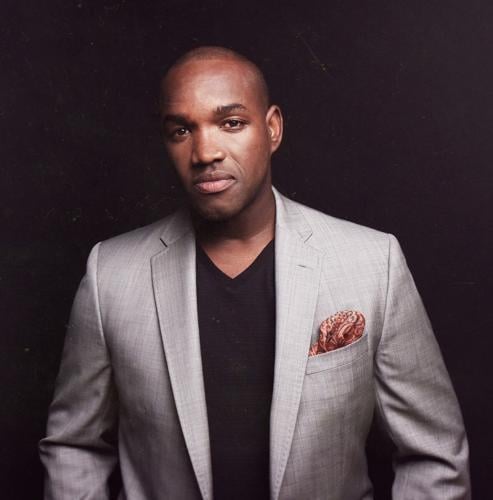Lawrence Brownlee got an intriguing offer as the light at the end of the pandemic tunnel came into focus in 2022.
Carnegie Hall wanted him to return, but the tenor best known for his bel canto roles in operas by Rossini and Bellini didn’t want to return with the same-old-same-old repertoire of Mozart, Strauss and his go-to Italian favorites.
He wanted his post-pandemic return to be meaningful to him.
That’s when he struck on an idea: Wouldn’t it be great to take the music of young African American composers to one of the country’s most storied stages to celebrate coming out of one of the country’s darkest chapters?
Thus was born the Grammy-nominated, critically acclaimed 2023 album “Rising,” which Brownlee will bring to Tucson on Wednesday, March 13. The recital, presented by Arizona Opera, is part of the Tucson Desert Song Festival.
Brownlee, 51, commissioned six composers — Damien Sneed, Jeremiah Evans, Brandon Spencer, Jasmine Barnes, Joel Thompson and Shawn E. Okpebholo — to set the texts of poems from Harlem Renaissance writers, including Langston Hughes, Claude McKay, Douglas Johnson and Paul Laurence Dunbar into songs about joy, empowerment, faith, love and strength in the face of adversity.
“So many people think that music written by Black people is only for them. Yes, a lot of it may talk about our struggles and our difficulties of the past,” the 20-plus-year opera veteran said during a phone call last week. “But if you were to take the writings of Claude McKay and Langston Hughes and Zora Neale Hurston, you’ll realize that everything isn’t about the Black experience. They talk about love and they talk about family and so many other things and then people will realize and understand it’s for all of us.”
“Rising,” which Brownlee and his accompanist Kevin J. Miller introduced to the Carnegie Hall audience in March 2022 before releasing the album last June, grew out of the pandemic isolation.
“We were all sitting at home and we were looking around and doing some introspection of what we were going to do coming out of the pandemic,” he recalled.
We also were captivated by the May 2020 murder of George Floyd in Minneapolis at the hands of police officers.
“In the rhythm of life, we are going in different directions, we have things to do, it’s easy to miss something. … But when we were in the pandemic, we were sitting at home. Nothing was going on except the major event that was the George Floyd incident,” Brownlee said.
Floyd’s death was a turning point for the country and, arguably, the world. Protests erupted worldwide, and so did the conversation about equality and social justice. Brownlee said many of his classical music colleagues asked him and other Black artists if what they were seeing painted a true picture of what it was really like for African Americans.
“Our colleagues were reaching out to us, ‘I never knew it was this difficult,’” he recalled. But for him and others, “it’s not jarring to us because this is our reality.”
Those difficult conversations led to changes, some small and gratuitous, but others that had the feeling of lasting.
“A lot of people, myself included, thought that it would be short-lived, but I have to say that there has been an effort to try to mainstream … inclusivity, more opportunity, more diversity” in the arts, he said. “I think you can see that in the casting of different operas and concerts. You can see more diversity across the board, so that has been meaningful.”
Brownlee, accompanied by Miller, is devoting half of Wednesday’s recital at the University of Arizona’s Holsclaw Hall to “Rising.” The other half will feature songs and arias from composers who have influenced Brownlee’s career.
The recital is one of two Song Festival events next week. On Tuesday, March 12, the Mark Morris Dance Group brings “The Look of Love — Songs of Burt Bacharach” with Broadway actress and vocalist Marcy Harriell to Centennial Hall.

Arizona Arts Live brings Mark Morris Dance Group’s “The Look of Love” to Centennial Hall on Tuesday, March 12, with vocalist Marcy Harriell.






